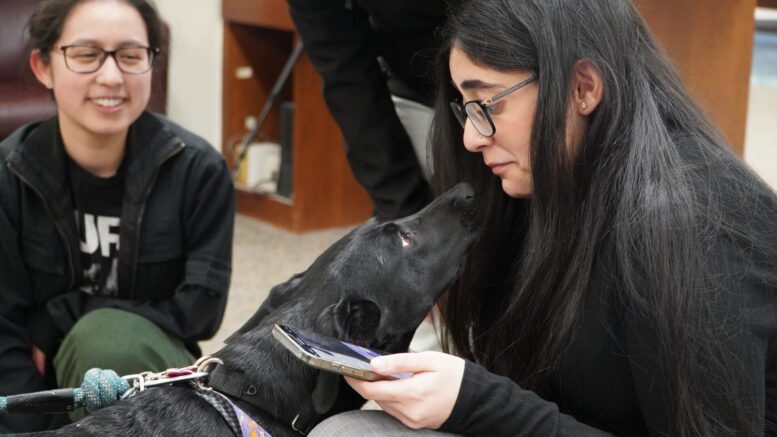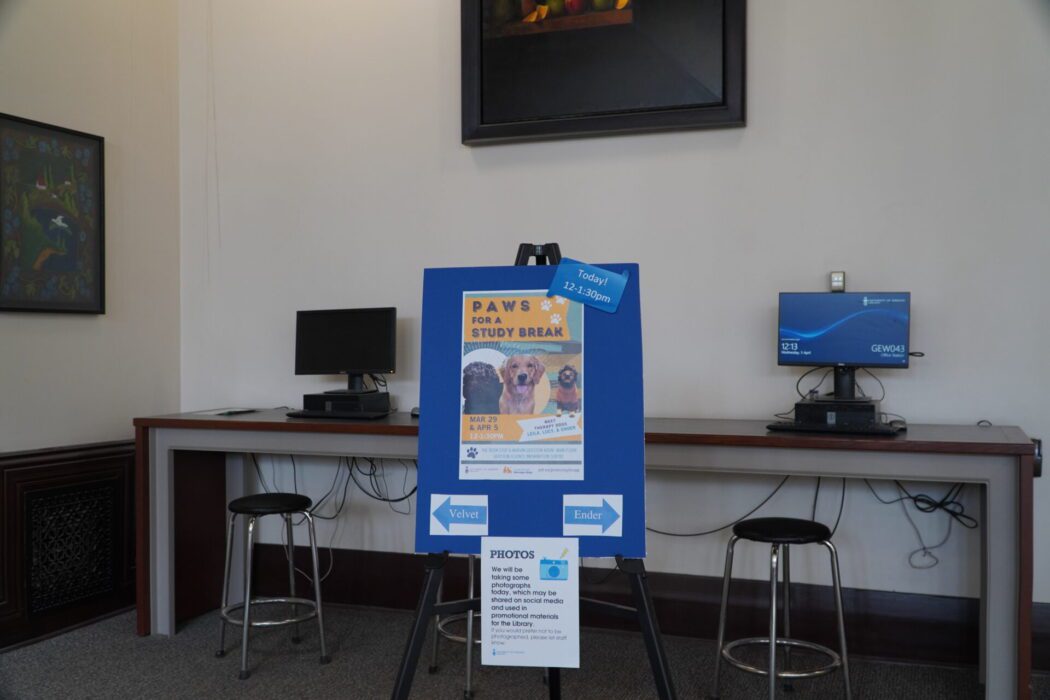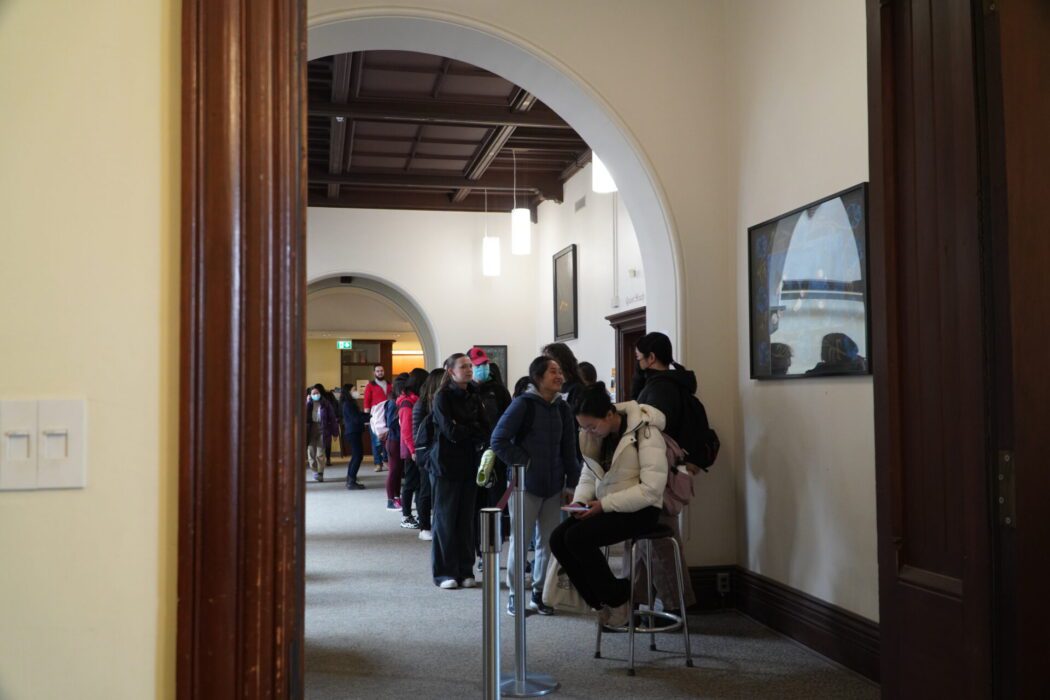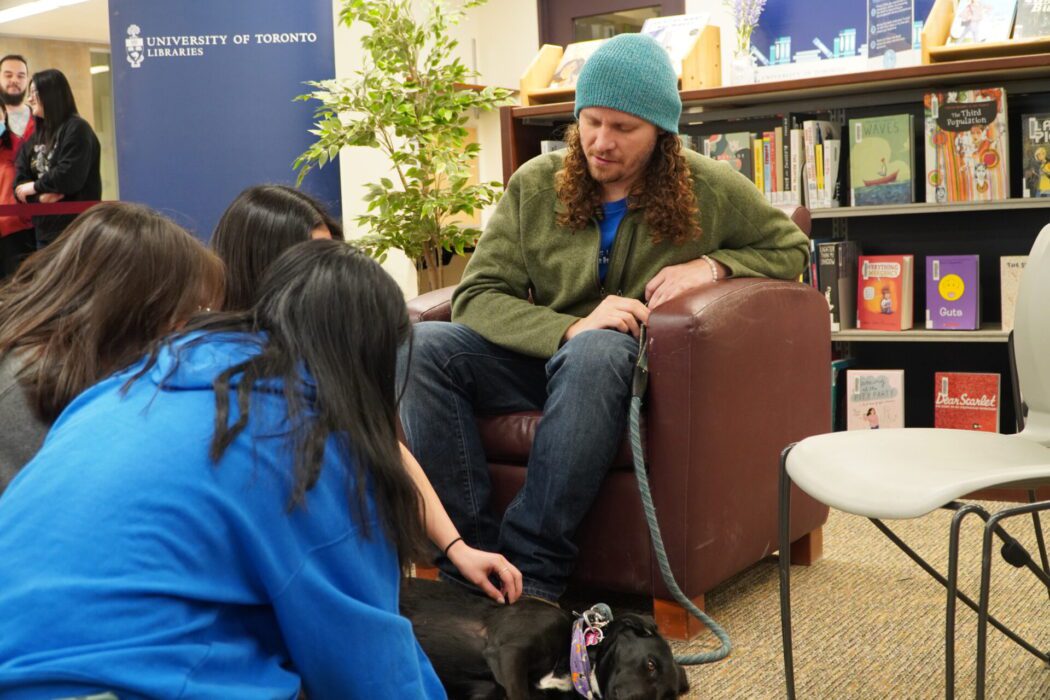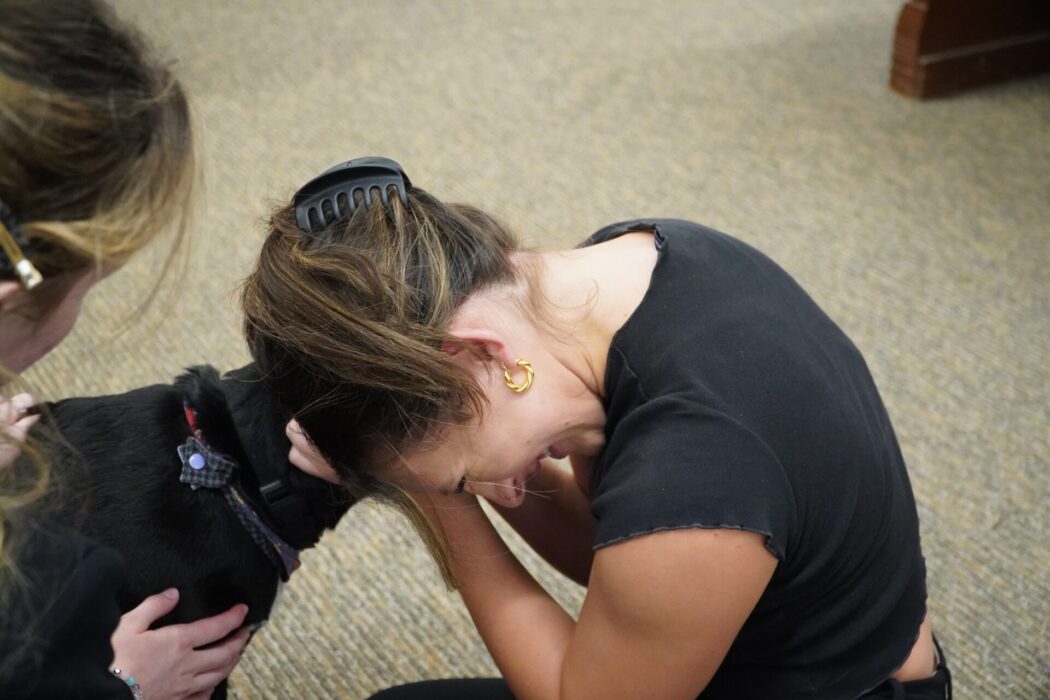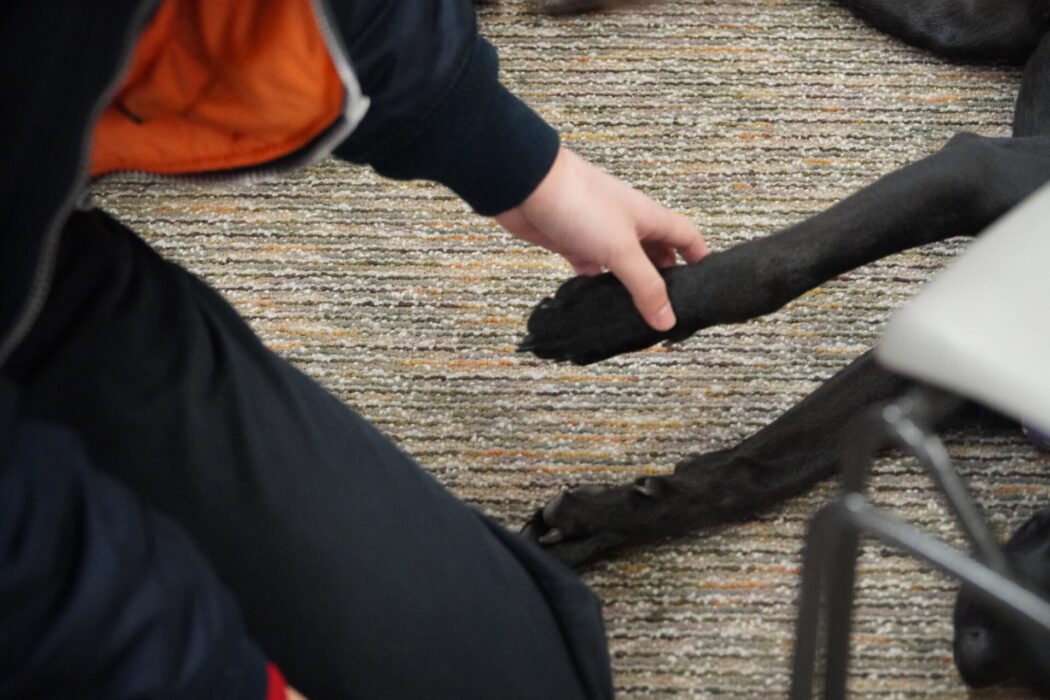On Monday afternoon, Dexter donned a white scarf embroidered with “St.John Ambulance” to start his weekly one-hour shift.
Excited whispers of “they are so cute,” and “look at them” circulated inside Toronto Metropolitan University’s library as students lined up to meet him. When the clock struck 1 p.m., they sat down in a circle surrounding him.
The students smiled and gently touched his face gently and prompted him to smell their hands; he lay down comfortably and revelled in all the attention. The stress of examinations and assignments was momentarily forgotten.
This is therapy dog day at Toronto Metropolitan University (TMU), an event designed to help students boost their mental health during exam period. Dexter, a Labrador retriever, eases their stress.
“I do find it therapeutic to just be with the dogs,” said Shia Colema, a TMU student. “Especially on a Monday, having early classes, it is relaxing.”
Watch therapy dogs meeting university students:
A worsening mental health crisis
From inflation to safety concerns on public transportation, Torontonians are experiencing a worsening mental health crisis, and students are particularly affected. A report published by the Canadian Alliance of Student Associations found that three in four post-secondary students experienced negative mental health during the 2021-2022 school year.
“Everybody experiences emotion,” said Kyle Genson, an assistant professor of social work from University of Toronto and expert on young adult mental health.
Pet therapy can reach more people than more traditional forms of support: Not everyone likes the idea of talk therapy, and interacting with animals makes people feel good, he added.
St. John Ambulance and Sunshine Therapy Dogs are two of the organizations using therapy dogs to respond to increasing mental health concerns in Toronto.
“I think it’s just a natural instinct that we must have, as human beings, mostly to receive comfort from animals,” said Alan Harman, founder and president of Sunshine Therapy Dogs.
A 2015 academic study published in the Canadian Journal of Counselling and Psychotherapy looked at the effects of the St. John Ambulance program. The researchers found that nearly half of Canada’s 98 universities offered therapy dog programs. When 403 students were asked if the therapy dog program had a lasting impact on how they handle stress in their life, 81 per cent of them said it did.
The work also benefits the dogs themselves. According to the American Veterinary Medical Association, the human-animal bond is a mutually beneficial relationship that is essential to the health and the wellbeing of both parties.
The demand for therapy dogs
No training or licence is required for a therapy dog designation. Instead, St. John Ambulance and Sunshine Therapy Dogs assess dogs and their handlers. Once they pass the evaluation and the dog’s owner passes a police background check, the pair can be sent to private companies or schools looking to help people manage their stress.
The peak season for sending therapy dogs to schools is usually before or after exams.
“A lot of students who are away from home are lonely, and they benefit from having a dog here,” said Marlene da Costa, program lead with St. John Ambulance. “We often get asked when we’re coming back again.”
Sunshine Therapy Dogs was only established two years ago, but the number of requests for its services has grown from zero to two per day without any marketing promotion. The organization is usually busy with schools during the weekdays and busy with seniors’ facilities during the weekend.
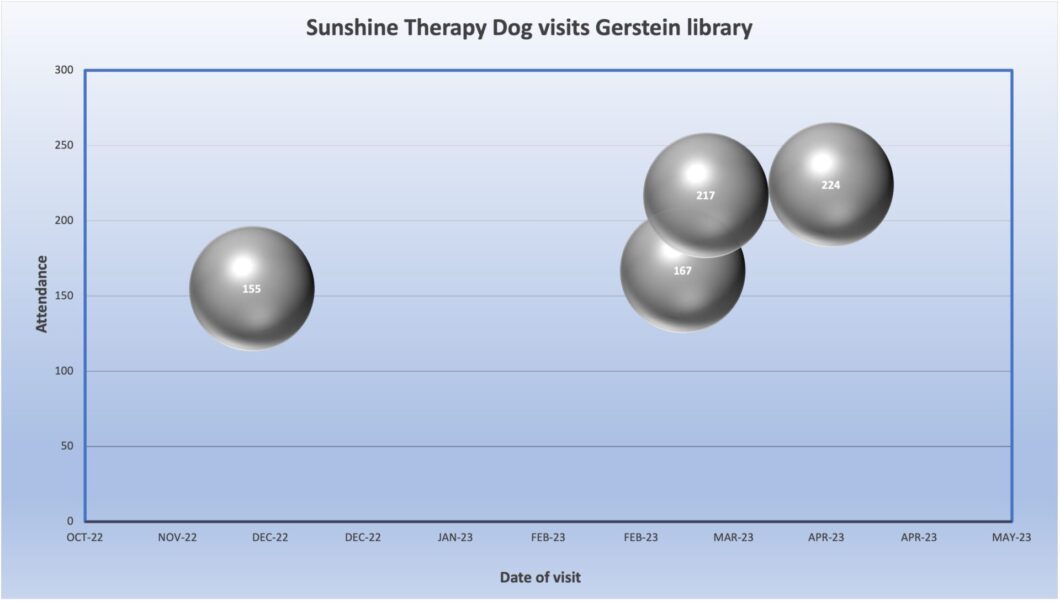
Money is the biggest barrier
“It’s a great idea for students to just take some time away from the academic life in school and have that speck of time where they could enjoy themselves with a therapy pet,” said Jeffrey Osaro, the Toronto District School Board’s student trustee. “It’ll give them happiness and motivation to continue their work.”
Osaro said mental health support varies among Toronto school boards, and the school board is trying to invest more in supporting students’ wellness.
In 2022, TDSB approved a $3.4-billion operation budget, and the well-being of students is one of their main priorities.
“You think about all the different people that are suffering that a dog could be helpful for and we just don’t have the resources to satisfy all that right now,” said Harman. As a charity, Sunshine Therapy Dogs relies heavily on donations and can only hire one part-time staff member for communication, assessment in recruiting therapy dogs and to arrange all the visits.
“I think the demand for this is huge. I just want to do as much as we can,” said Harman. Money is the biggest barrier for them to offer broader services among Toronto.
Read more from the Toronto Observer:
- Will my perfect pandemic pet boost my mental health? It’s complicated.
- Mississauga dog training business booms during pandemic
- Ancient therapy energizes pets
Not guilty about his privilege

Harman started his first charity at the age of 27 and has participated in a variety of others throughout his life, but being involved in therapy dog service is the most unique experience for him.
“There’s no awkward moral calculus around privilege and giving, and receiving, and white and Black, and have, and have not, because it’s the dog doing the work,”he said. “The transaction of love, of giving and receiving, is between the dog and the person, so I don’t have to feel guilty about my privilege.”
Alan Harman, founder of Sunshine Therapy Dogs
David Bluestein, Dexter’s handler, echoed Harman. “I am not the volunteer, I am just the handler. My dog is a volunteer,”he said.
As the hour hand on the library clock reached two o’clock, Dexter bid farewell to the students; this was his last working day of the semester. But the students were not done. Two of the women who had reached their time limits with him lined up again, just to see Dexter once more.
No one wanted the experience to end.
“I don’t want to leave. I am so in the moment,” one student said.

